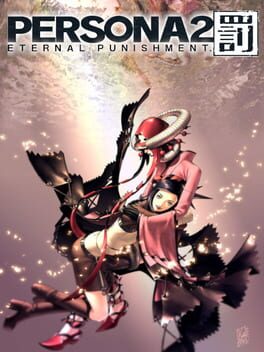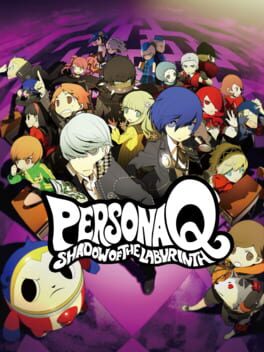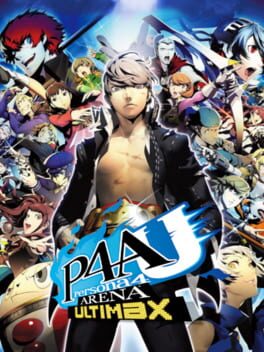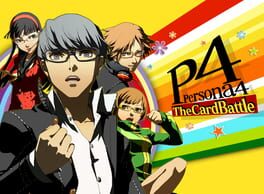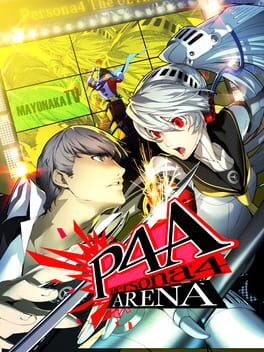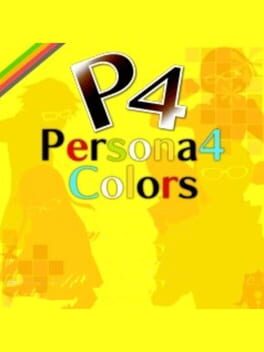

A remake of Persona 2: Eternal Punishment
Persona 2: Eternal Punishment is a 2000 role-playing video game by Atlus for the PlayStation. It is chronologically the third installment in the Persona series, a subseries of the Megami Tensei franchise. The game was later remade by Atlus for the PlayStation Portable. This version, released in Japan in 2012, did not receive an overseas release. In response to this, the PlayStation version was released on PlayStation Network in 2013. Eternal Punishment takes place in the fictional Japanese city of Sumaru, and is a direct sequel to Persona 2: Innocent Sin. Taking place a few months after Innocent Sin, the game follows reporter Maya Amano as she investigates the Joker Curse, a malign phenomenon where people's wishes and rumors are coming true and causing chaos. During her investigations, she and others who join her gain the ability to summon Personas, personified aspects of their personalities. The gameplay features turn-based battle gameplay, where characters use their Personas in battle against demons, and a separate Rumor system, where rumors spread around the city can influence events in the characters' favor, either bad or good.
Also in series
Reviews View More
P2, and especially EP, puts a ton of emphasis on allowing the city to feel lived-in and breathing. for anything you do, there's new dialogue everywhere, and the main progression gimmick (rumors coming to life at the player's will) is utilized in a lot of clever ways to achieve that goal. persona games are known for being text-heavy in general, but i wouldn't be surprised if these two games had some of the larger scripts in the franchise, because every story moment basically changes the whole city. in a game all about listening to the pulse of the city, this feels very appropriate, creating a much stronger sense of immersion than you'd expect for a game like this.
now for stuff focused solely on EP:
out of all of the traditional storytelling archetypes, probably the most common for a JRPG to use is the coming of age story. this makes a lot of sense, logistically; most video game consumers are teenaged, most JRPG protagonists are teenaged, and the power fantasy typically inherent to the genre is about starting from a weak position and growing to be strong. eternal punishment doesn't have these sorts of goals, and it's a lot more engaging for it. EP's cast is a group of adults, and you'd be forgiven for thinking at the beginning of the game that this cast doesn't have much room to grow. indeed, EP's characters definitely do not "grow up" in the way typical for JRPG writing; these characters start out pretty divided and uncomfortable with each other, but there isn't a big climax where they confront their fears all at once and become a team. instead, EP uses optional dialogue to subtly paint a portrait of each of it's cast members and has them slowly begin to open up over time. it's rewarding and immersive to have these characters actually gain new contacts due to these little nuggets of development, and it's a much more lifelike approach to party development than you see in more traditional narratives. a key concept this game has about identity is that it's self-determined; people aren't simply on a search to discover how they really are, but are ever-changing and create the path they walk. i think integrating this into the story by making much of the development up to the player is exceptionally clever. it's a fairly common statement among writers attempting subversive character writing to say that human beings don't have arcs. i feel that this is often used to justify uninteresting or directionless character writing, but in EP it feels like a pretty considered thesis for the game's writing. i guess a better way of saying it is that people don't just have arcs, they don't grow up at one specific point. development here is more like a stream, ebbing and flowing.
STORY SPOILERS HERE
all that being said, eternal punishment was greenlit for a very specific reason; to give an alternate perspective to tatsuya. i also felt that this was done quite well. tatsuya was about as well-characterized as a silent protagonist could get in IS, i felt, but getting a voice definitely helps him. his self-imposed suicide mission is a great narrative hook, and the reasoning behind his existential guilt is one of the best reveals of the story. tatsuya commits (yet another) innocent sin by refusing to forget his friends again, and it's not surprising that he'd try to shoulder the burden to protect their reality. tatsuya is ultimately a character whose greatest weakness is his protective instinct, but through the comfort of the main cast he's able to get past that and use his sins as blessings. it's beautiful payoff for a story that's rife with personal loss and seemingly hopeless odds.
in a lot of ways, P2 reminds me of panzer dragoon saga. both are these hugely ambitious games from around the same time that are driven by the urge to do something different. when i played innocent sin, i felt that that game's attempts at novelty wore thin; the character writing didn't feel dense, the combat was far too easy, and the deviations from standards felt poorly justified by the narrative. although there are still things i dislike in EP, the overall package feels more cohesive. rumors are more immersive and offer more variety, character dialogue is more interesting, the combat and character progression is more difficult but offers more interesting decisionmaking. definitely a huge improvement.
Psp version of this game is with no doubt the best way to play the game, dungeons feel smoother and the battle ui is less of a hassle, fanmade eng translation really aided it too,,old one was botched to the point of being kinda funny. Overall peaaaaak the story, music & cast are GOATed.
Edit: I forgot to mention the horrors... the bonus Tatsuya scenario is lowkey fucked up, his character writing is suddenly kinda odd...still, crumbs are crumbs... doesnt affect the main game much,, happy we got more Sudou appearances cuz he's cool. I'll crawl back into my hole.
Persona 2: Eternal Punishment is justifiably hailed as a classic for its gripping story, unique atmosphere, and memorable characters who are not constrained by the typical student roles found in many JRPGs and later entries in the Persona series.
Just like P1 and P2:IS, the vibe and atmosphere presented in this game are immaculate with its gritty urban setting and eerie supernatural elements. Eternal Punishment delves into mature themes the series never really has since, at least not in a way like EP did. As a sucker for old-school and adult characters, the stylized character designs not only reflect the era in which the game was created but also contribute significantly to the overall atmosphere and tone. It's a rarity in JRPGs and anime these days, which is a shame because I believe these mediums could benefit greatly from more variety.
However, one aspect that really disappointed me was Maya's sudden role as a silent protagonist. It's an annoying trope all too common in JRPGs and in a game with such rich character development, Maya's silence felt like a missed opportunity for further exploration of her character. I've never really been a big fan of silent protagonists to begin with, but this trend never fails to annoy me. I get that silent protagonists are popular in JRPGS, but Maya being one in a story and character-driven game like EP felt like a huge mistake.
Despite this, the story of Persona 2: Eternal Punishment hooked me from the very beginning. Just like its predecessor, its intricate plot weaves together supernatural elements with psychological depth, creating a narrative that kept me engaged throughout the whole thing.
P1 and P2 are, without a doubt, the best Persona games Atlus has ever cooked up, despite their clunky and dated gameplay. If you're a Persona fan, you will be doing yourself a disservice by not trying out these amazing games. But what made me really love and appreciate these games, aside from the great characters and stories, are the atmosphere and vibes that only retro games can truly emphasize.
